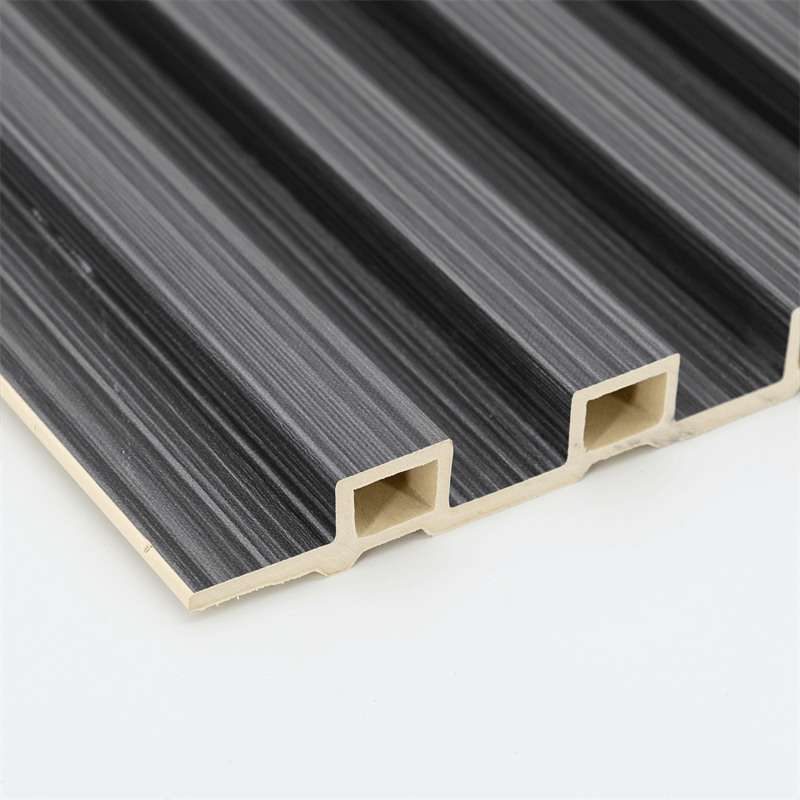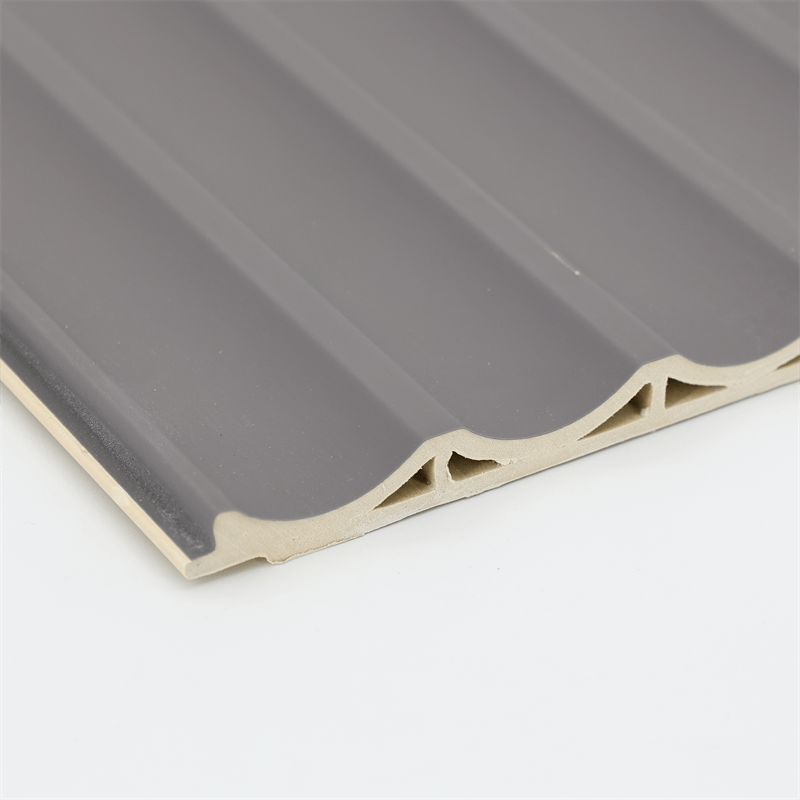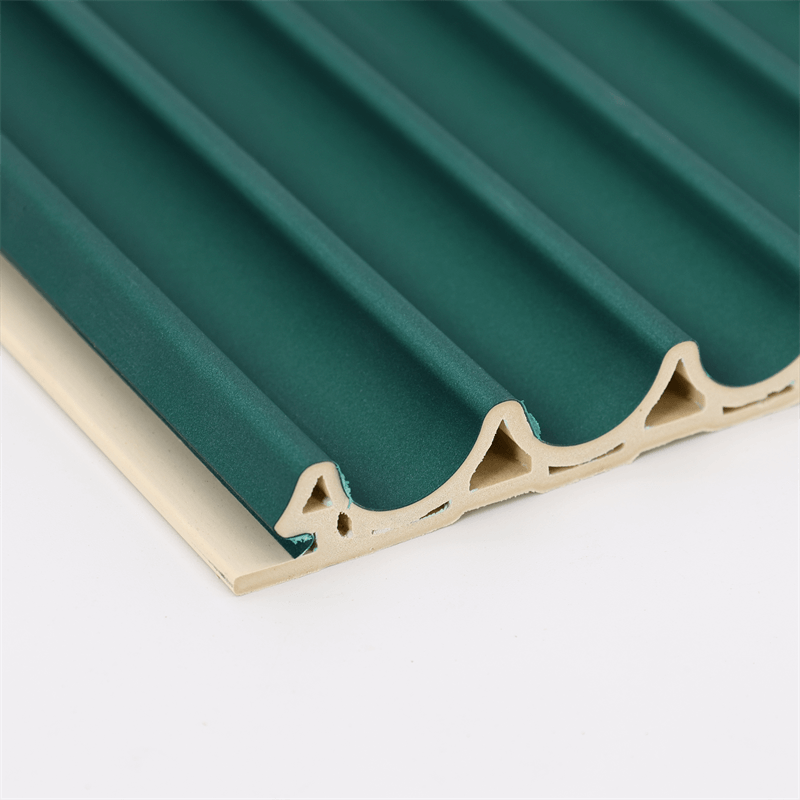In recent years, the construction industry has witnessed a growing demand for sustainable building materials that offer both durability and eco-friendliness.
Among these materials, WPC (Wood-Plastic Composite) wall panels have emerged as a popular choice due to their numerous advantages.
This essay explores the benefits of WPC wall panels as a sustainable building solution, focusing on four key aspects: environmental impact, durability, design versatility, and ease of installation.
I. Environmental Impact:
WPC wall panels are known for their positive environmental impact, making them an attractive choice for environmentally conscious builders and homeowners.
Firstly, WPC is a composite material that combines wood fibers with recycled plastic.
By utilizing plastic waste that would otherwise end up in landfills or oceans, WPC helps reduce the environmental burden caused by plastic pollution.
Moreover, the manufacturing process of WPC wall panels requires less energy compared to traditional wall materials like concrete or brick.
This energy efficiency contributes to a lower carbon footprint, thereby reducing greenhouse gas emissions.
Additionally, the use of recycled materials in WPC wall panels helps conserve natural resources, such as timber, which are otherwise harvested from forests.
II. Durability:
One of the key advantages of WPC wall panels is their exceptional durability. Unlike traditional materials, such as wood or plasterboard, WPC panels are highly resistant to moisture, rot, and decay.
This inherent resistance makes them ideal for both interior and exterior applications, even in humid or wet environments.
Furthermore, WPC wall panels are resistant to insect infestation, which can be a common problem with traditional wood materials.
This resistance eliminates the need for chemical treatments, reducing the use of harmful pesticides and preserving indoor air quality.
The durability of WPC panels ensures a longer lifespan, reducing the frequency of replacements and minimizing waste generation.
III. Design Versatility:
WPC wall panels offer a wide range of design possibilities, allowing architects and designers to unleash their creativity.
These panels come in various sizes, colors, and finishes, enabling customization to suit different architectural styles and interior aesthetics.
Whether it’s a contemporary office space, a rustic residential interior, or a sleek commercial establishment, WPC wall panels can adapt to diverse design concepts.
Additionally, WPC panels can be manufactured to mimic the appearance of natural materials, such as wood or stone, without the associated maintenance requirements.
This versatility allows for the creation of visually appealing spaces that capture the essence of natural materials while benefiting from the durability and sustainability of WPC.
IV. Ease of Installation:
Another advantage of WPC wall panels is their ease of installation, making them a preferred choice for both professionals and DIY enthusiasts.
These panels are lightweight, which simplifies handling and reduces the need for heavy equipment during installation.
The interlocking system or tongue-and-groove design of WPC panels facilitates seamless connections, ensuring a quick and efficient installation process.
Furthermore, WPC wall panels can be installed directly onto existing walls, eliminating the need for extensive demolition or preparatory work.
This feature not only saves time but also reduces construction waste. The ease of installation translates into cost savings for builders and homeowners alike, making WPC an economical choice for construction projects.

In conclusion, WPC wall panels offer numerous advantages as a sustainable building solution.
Their positive environmental impact, exceptional durability, design versatility, and ease of installation make them a preferred choice for construction projects.
By utilizing recycled materials and reducing energy consumption, WPC panels contribute to sustainable building practices and help mitigate the environmental impact of the construction industry.
As the demand for eco-friendly materials continues to rise, WPC wall panels are poised to play a significant role in shaping the future of sustainable construction.
Moreover, the advantages of WPC wall panels extend beyond their individual benefits. Their sustainable nature aligns with the broader goals of sustainable development and environmental stewardship.
By choosing WPC wall panels, builders and homeowners contribute to the preservation of natural resources, reduction of waste, and mitigation of climate change.
Additionally, the versatility of WPC wall panels allows for creative expression in architectural design.
The wide array of colors, sizes, and finishes provides endless possibilities for creating aesthetically pleasing spaces that cater to various design preferences.
This flexibility ensures that WPC panels can seamlessly integrate into any project, whether it’s a residential, commercial, or institutional building.
Furthermore, the durability of WPC wall panels ensures long-term value for building projects.
Their resistance to moisture, rot, and insect infestation significantly reduces maintenance requirements and prolongs the lifespan of the panels.
This not only saves time and money but also minimizes the need for replacements, thereby reducing waste generation and promoting sustainability.
In conclusion, WPC wall panels offer a compelling solution for sustainable construction. They embody the principles of environmental responsibility, durability, design versatility, and ease of installation.
As the demand for eco-friendly building materials continues to grow, WPC panels provide a viable option for those seeking sustainable solutions without compromising on aesthetics or performance.
By embracing the advantages of WPC wall panels, we can contribute to a more sustainable future for the construction industry.
With their positive environmental impact, durability, design versatility, and ease of installation, WPC wall panels are poised to revolutionize the way we build and design our spaces.
As we move forward, let us prioritize sustainability in construction and embrace innovative solutions like WPC wall panels to create a built environment that harmonizes with nature and promotes a greener, more resilient future.


